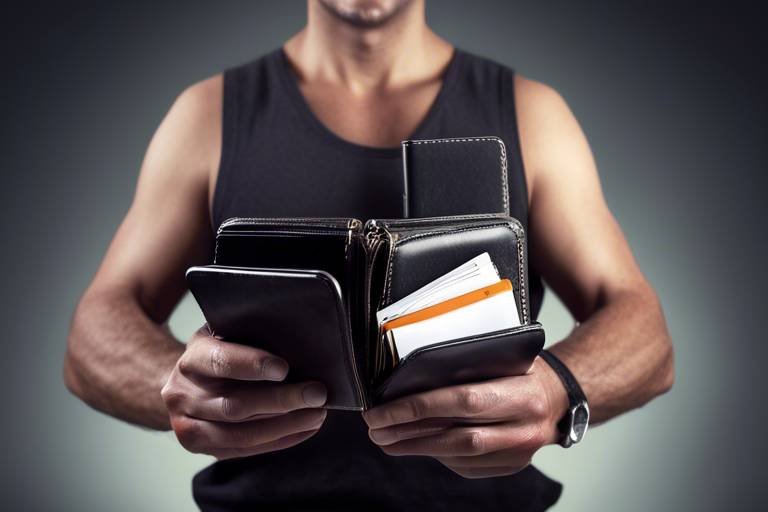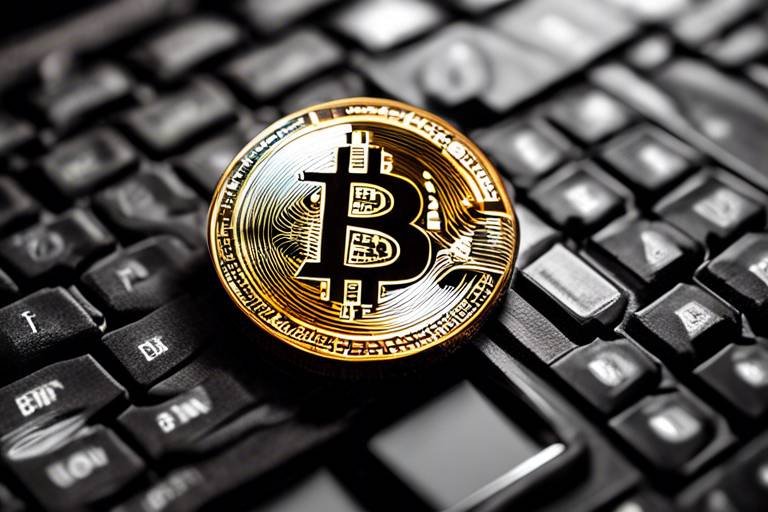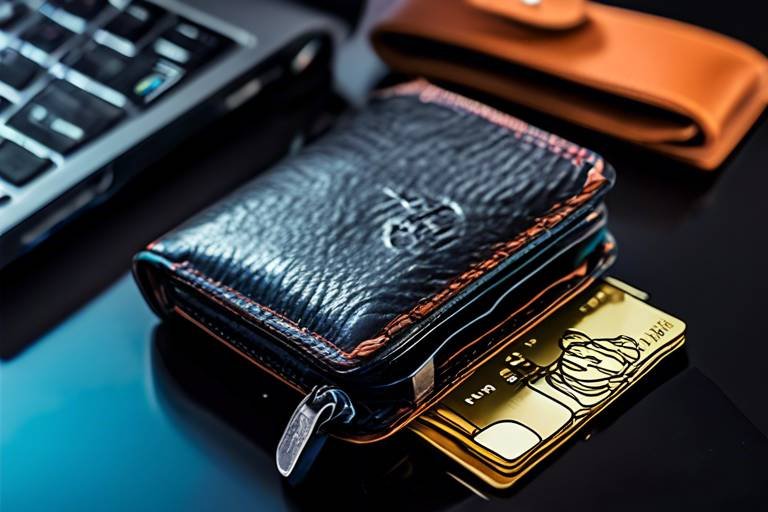Understanding the Role of Custodial vs. Non-Custodial Wallets
In the rapidly evolving world of cryptocurrency, understanding the different types of wallets is crucial for any user looking to navigate this digital landscape. The debate between custodial and non-custodial wallets is one that often leaves newcomers scratching their heads. So, what’s the difference? In simple terms, custodial wallets are like a bank where a third party holds your private keys, while non-custodial wallets give you the keys to your own digital vault. This article dives deep into these two wallet types, exploring their functionalities, advantages, and disadvantages, so you can make an informed decision that aligns with your cryptocurrency journey.
Custodial wallets are digital wallets that store your cryptocurrency on your behalf, managed by a third party. Think of them as a safe deposit box at your local bank. You trust the bank to keep your valuables secure, but you don’t have direct control over them. In the case of custodial wallets, the service provider holds your private keys, meaning they have the ultimate access to your funds. This arrangement can be convenient, especially for beginners who may not want to deal with the technical intricacies of managing their own keys. However, it also raises questions about security and trust. Users should consider the reputation and security measures of the custodial service they choose, as these factors can significantly impact their overall experience.
On the flip side, non-custodial wallets empower users by allowing them to maintain full control over their private keys. Imagine having your own safe at home where you can access your valuables anytime without needing to ask for permission. With non-custodial wallets, you are the sole guardian of your cryptocurrency. While this provides a greater sense of security and ownership, it also comes with the responsibility of managing your own keys. If you lose your keys, you lose access to your funds—no bank or third party can help you recover them. This section will explore how non-custodial wallets work, their security benefits, and the responsibilities that come with managing your own keys.
While custodial wallets offer convenience, they are not without their risks. One of the primary concerns is the potential for hacks. When you trust a third party with your private keys, you are also trusting them to keep your information secure. Unfortunately, the cryptocurrency space has seen several high-profile breaches where custodial services have been compromised, leading to significant losses for users. Thus, it’s essential to assess the security measures in place, such as two-factor authentication and encryption protocols, before choosing a custodial wallet.
Many custodial wallets adhere to regulatory standards, which can be a double-edged sword. On one hand, compliance can enhance user trust and provide a layer of protection for your data. On the other hand, it may limit your privacy and introduce additional requirements for account verification. Understanding how these regulations affect your experience is crucial, especially if you value anonymity in your transactions.
Trust is a cornerstone of custodial wallets. The reputation of the custodian can significantly influence your decision to use their services. A well-established company with a solid track record can provide peace of mind, while a lesser-known provider might raise red flags. Always conduct thorough research and read user reviews to ensure that you are entrusting your assets to a reliable service.
Non-custodial wallets come with a unique set of security implications. While they offer greater control, they also place the onus of security squarely on the user. A single mistake, such as misplacing your recovery phrase or falling victim to phishing scams, can lead to irreversible loss of funds. Therefore, it is imperative to implement robust security practices, such as using hardware wallets or secure password managers, to safeguard your assets effectively.
For many users, custodial wallets present a user-friendly entry point into the world of cryptocurrency. Their convenience and ease of use make them particularly appealing to beginners who may feel overwhelmed by the complexities of private key management. With intuitive interfaces and streamlined processes, custodial wallets allow users to focus on trading and investing without diving into the technicalities.
One of the standout features of custodial wallets is their accessibility. Users can effortlessly conduct transactions, access funds, and manage their portfolios without needing extensive technical knowledge. This user-centric design is particularly beneficial for those who are new to cryptocurrency, making it easier to engage with the digital economy.
Many custodial wallets also offer customer support, which can be invaluable for users who encounter issues or need assistance with recovery options. This support can provide a safety net for those who might feel anxious about losing access to their funds. Knowing that help is available can ease the minds of users, especially beginners who are still learning the ropes.
Non-custodial wallets are all about empowerment. They give users full control over their assets, which can be a game-changer for those who prioritize security and privacy. With non-custodial wallets, you can engage in transactions with a sense of autonomy that custodial wallets simply can’t match. This section will highlight the key advantages that make non-custodial wallets appealing, especially to more experienced users.
In a world where data breaches are all too common, non-custodial wallets shine when it comes to privacy. Because you are not relying on a third party, your transaction history and personal information remain confidential. This level of anonymity can significantly reduce the risk of data exposure and makes non-custodial wallets a preferred choice for privacy-conscious users.
With non-custodial wallets, users maintain long-term control over their assets. This freedom allows for more strategic investment decisions and a greater ability to manage your cryptocurrency portfolio. Whether you're a long-term investor or a day trader, having direct control over your funds can enhance your overall investment strategy.
- What is the main difference between custodial and non-custodial wallets? Custodial wallets are managed by third parties, while non-custodial wallets allow users to control their own private keys.
- Are custodial wallets safe? While they can be convenient, custodial wallets carry risks, particularly if the service provider experiences a security breach.
- Can I recover my funds if I lose access to a non-custodial wallet? No, if you lose your private keys or recovery phrase, you will not be able to access your funds.
- Which wallet type is better for beginners? Custodial wallets are generally easier for beginners due to their user-friendly interfaces and customer support.
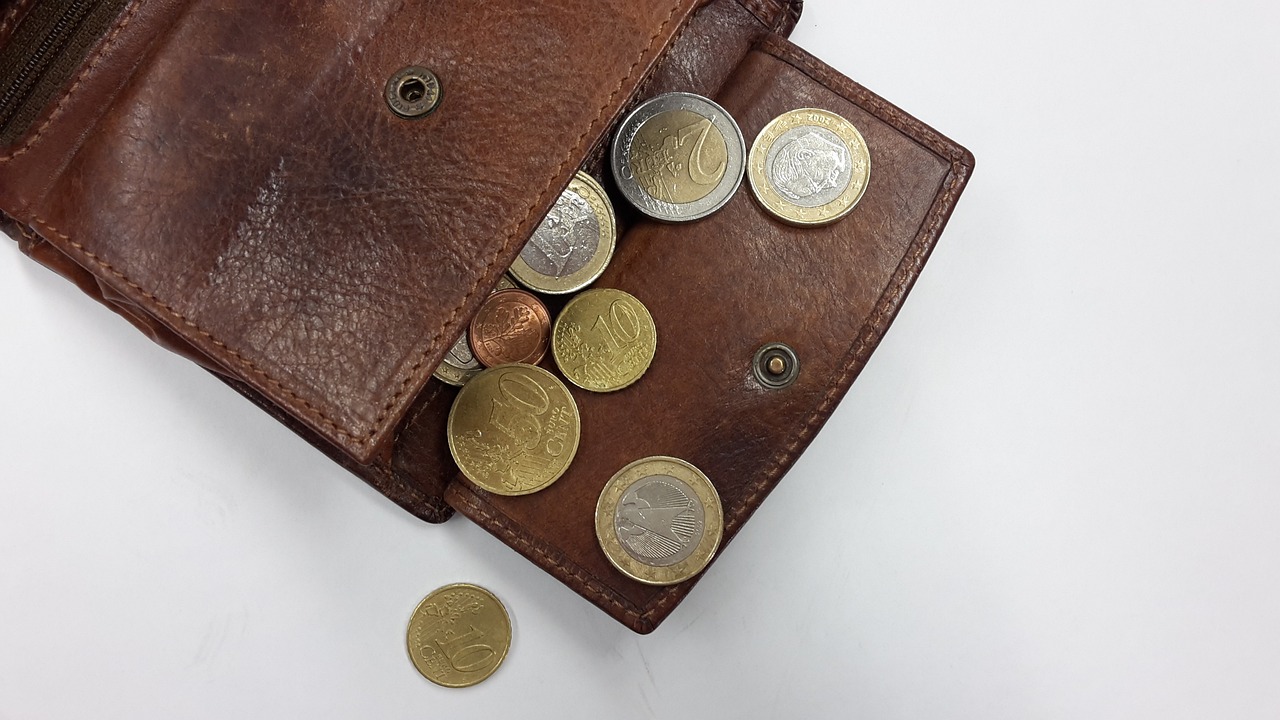
What Are Custodial Wallets?
Custodial wallets are essentially digital wallets that are managed by a third party, which means that they hold and manage your private keys on your behalf. Think of them as a bank where you deposit your money, and the bank takes care of it for you. This setup can be incredibly convenient, especially for those who are new to the cryptocurrency world and might find the technical aspects intimidating. But how do custodial wallets actually work?
When you create a custodial wallet, you typically sign up with a service provider that will generate a wallet for you. This provider will store your private keys, which are essential for accessing your funds. While this arrangement can simplify the user experience, it also raises important questions about security and control. Users must trust the provider to keep their funds safe, which can be a double-edged sword.
In terms of security features, custodial wallets often implement various measures to protect user assets, such as:
- Two-Factor Authentication (2FA): This adds an extra layer of security by requiring a second form of verification.
- Encryption: User data is encrypted to protect against unauthorized access.
- Regular Security Audits: Many custodial services undergo audits to ensure their systems are secure.
However, while these features can enhance security, they do not eliminate the risks entirely. Users must consider the implications of trusting a third party with their assets. For instance, if the custodian experiences a security breach or goes out of business, users could potentially lose access to their funds. This trust factor is crucial and often leads to the question: "How safe is my money in a custodial wallet?"
Before choosing a custodial wallet, it's essential to do your homework. Look for reputable providers with a solid track record, read user reviews, and check for any past security incidents. The importance of due diligence cannot be overstated in this context, as it can significantly impact your overall experience and security. In short, custodial wallets offer convenience and ease of use, but they come with a trade-off in terms of control and trust.
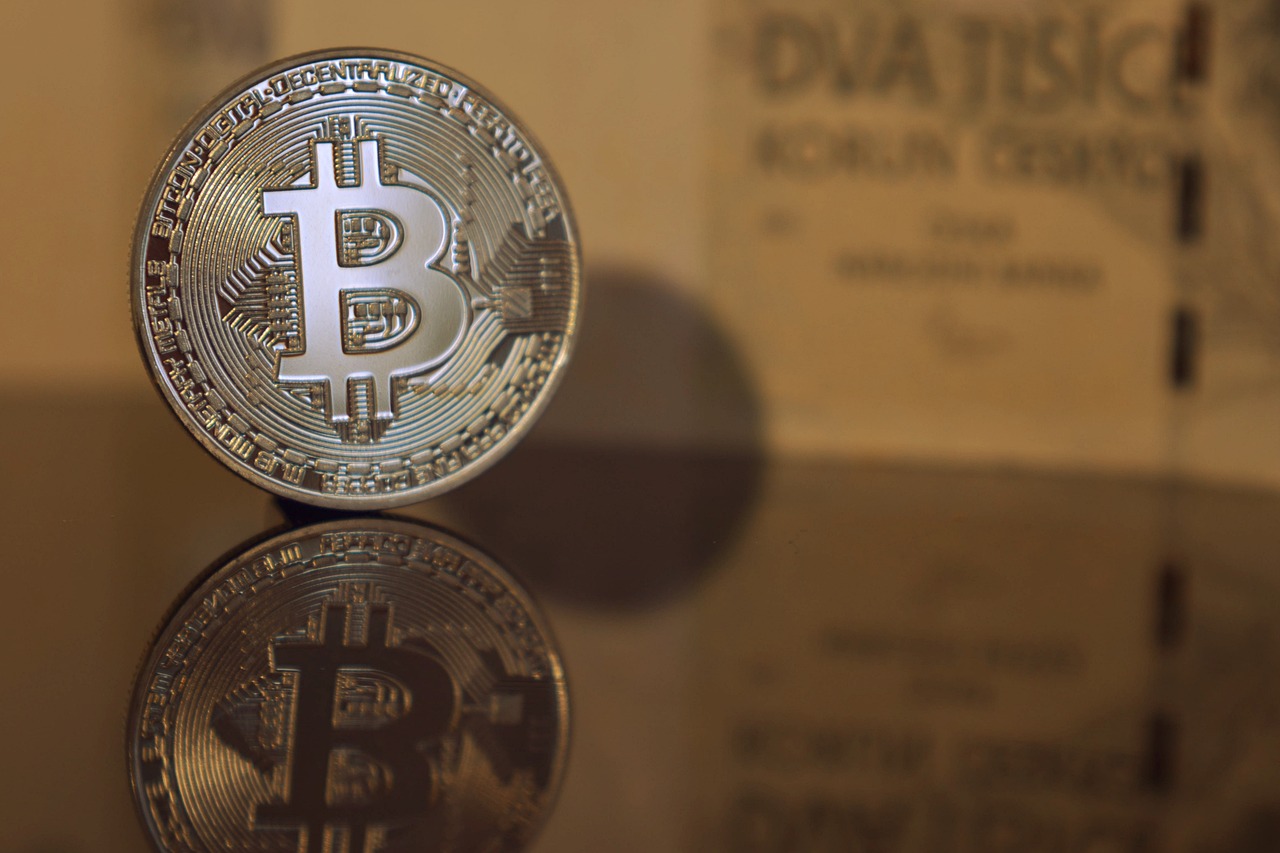
What Are Non-Custodial Wallets?
Non-custodial wallets are a type of digital wallet that puts you in the driver’s seat when it comes to managing your cryptocurrency. Unlike custodial wallets, where a third party holds your private keys, non-custodial wallets empower you to maintain full control over your assets. This means that you are the sole keeper of your private keys, which are crucial for accessing and managing your funds. Think of it as owning a safe where only you have the key, rather than renting a safety deposit box at a bank.
So, how do non-custodial wallets work? When you create a non-custodial wallet, a unique pair of cryptographic keys is generated: a public key, which is like your bank account number that you can share with others to receive funds, and a private key, which is akin to your PIN that you must keep secret to access your wallet. This setup ensures that you have complete authority over your cryptocurrency, giving you the freedom to send, receive, and store assets without relying on any intermediary.
One of the significant advantages of non-custodial wallets is their enhanced security features. Since you are the only one who has access to your private keys, the risk of hacks or theft from a third-party service is significantly reduced. However, this also means that you bear the full responsibility for safeguarding your keys. If you lose access to your private key, you lose access to your funds, and there’s no customer service to call for help. This aspect can be daunting for newcomers, but it also encourages users to take their security seriously.
Moreover, non-custodial wallets often come with various functionalities, including:
- Multi-Currency Support: Many non-custodial wallets allow you to store multiple cryptocurrencies in one place, making it convenient for users who hold diverse assets.
- Privacy Features: These wallets typically offer enhanced privacy options, allowing for anonymous transactions that minimize the risk of data breaches.
- Decentralization: With no central authority controlling your funds, non-custodial wallets embody the core principles of cryptocurrency: decentralization and user empowerment.
In conclusion, non-custodial wallets represent a powerful tool for cryptocurrency enthusiasts who value independence and security. They may require a bit more effort to manage, but the control and privacy they provide can be well worth it for those willing to take on the responsibility. As you navigate the crypto landscape, understanding the ins and outs of non-custodial wallets can help you make informed decisions about how to protect and grow your digital assets.

Security Implications of Custodial Wallets
When it comes to custodial wallets, the security implications can be quite significant. These wallets are essentially a digital safe where a third party holds your private keys. This means that while you enjoy the convenience of easy access to your funds, you're also placing a considerable amount of trust in that third party. But what happens if they experience a security breach? Well, your assets could be at risk. In fact, history has shown us that custodial wallets have been targets for hackers looking to exploit vulnerabilities.
One of the primary concerns with custodial wallets is the potential for hacks. Cybercriminals are always on the lookout for weaknesses in security systems, and custodial wallets can be particularly appealing targets due to the large amounts of cryptocurrency they often hold. For instance, the infamous Mt. Gox hack in 2014 resulted in the loss of approximately 850,000 Bitcoins, a staggering amount that has never been fully recovered. This incident serves as a reminder of the risks associated with trusting a third party to safeguard your digital assets.
Additionally, custodial wallets may be subject to regulatory scrutiny. Depending on the jurisdiction, these wallets might be required to adhere to certain regulations aimed at protecting user data. While this can enhance security, it also means that your information is in the hands of the custodial service. If they fail to comply with these regulations or if their security measures are inadequate, your sensitive information could be compromised, leading to identity theft or financial loss.
It's also worth noting that custodial wallets often require users to complete verification processes, which may involve sharing personal information. This can create a double-edged sword. On one hand, it can help secure your account; on the other, it increases the potential for data breaches. Users should be aware of the implications of sharing their information and the possible consequences if that data falls into the wrong hands.
In summary, while custodial wallets offer a user-friendly experience and ease of access, they come with inherent risks that users must consider. The trust placed in third parties, the potential for hacks, and the implications of regulatory compliance are all critical factors that can impact the security of your assets. Always ensure that you conduct thorough research on the custodial service you choose, as the safety of your cryptocurrency often hinges on their reputation and security measures.

Regulatory Compliance
When it comes to custodial wallets, is a critical aspect that cannot be overlooked. These wallets are often managed by third-party service providers, which means they are subject to various laws and regulations intended to protect consumer interests. In many jurisdictions, custodial wallet providers must adhere to anti-money laundering (AML) and know your customer (KYC) regulations. This compliance ensures that the custodians verify the identities of their users, which helps mitigate risks associated with fraud and illicit activities.
However, this regulatory oversight can have both positive and negative implications for users. On the one hand, compliance can enhance user trust, as it signifies that the provider is operating within legal boundaries. On the other hand, it can also lead to privacy concerns, as users may feel uncomfortable sharing personal information with a third party. This duality raises an important question: how much personal information are users willing to share for the sake of security?
Moreover, custodial wallet providers are often required to implement robust security measures to protect user data and funds. This includes encryption protocols, multi-factor authentication, and regular security audits. While these measures are designed to safeguard users, they also highlight the inherent risk of placing trust in a third party. Users must weigh the convenience of regulatory compliance against the potential vulnerabilities of entrusting their assets to someone else.
In summary, while regulatory compliance in custodial wallets aims to create a safer environment for users, it also introduces complexities related to privacy and trust. As the cryptocurrency landscape continues to evolve, users should stay informed about the regulations that affect their custodial wallets and consider how these factors align with their personal values and security needs.
- What is the main difference between custodial and non-custodial wallets? Custodial wallets are managed by third parties who hold your private keys, while non-custodial wallets allow users to control their own keys.
- Are custodial wallets safe to use? Generally, custodial wallets are safe due to regulatory oversight and security measures, but they do come with risks associated with trusting a third party.
- Can I lose my funds with a non-custodial wallet? Yes, if you lose access to your private keys, you may permanently lose access to your funds.
- What should I consider when choosing a wallet? Consider factors like security, ease of use, regulatory compliance, and whether you prefer to have control over your private keys.

User Trust and Reputation
When it comes to custodial wallets, trust is the name of the game. Users are essentially placing their faith in a third party to safeguard their assets, which can feel a bit like handing over the keys to your house to a stranger. It's crucial to understand that the reputation of the custodian plays a significant role in this equation. A custodian with a solid track record can provide users with peace of mind, while a company with a history of security breaches can leave users feeling vulnerable and anxious.
So, how do users determine which custodial wallet to trust? A few key factors come into play:
- Security Measures: Look for custodians that implement robust security protocols, such as two-factor authentication (2FA), end-to-end encryption, and cold storage solutions. These features can significantly reduce the risk of hacks and unauthorized access.
- Regulatory Compliance: Custodians that adhere to regulatory standards often provide an added layer of safety. Compliance with laws and regulations not only protects the user but also reflects the custodian's commitment to maintaining high operational standards.
- User Reviews and Reputation: Checking user reviews and ratings on platforms such as Trustpilot or Reddit can provide insights into other users' experiences. A custodian with numerous positive reviews is likely to be more trustworthy.
Moreover, the transparency of a custodial wallet provider can greatly influence user trust. If a company openly shares its security practices, audit results, and has a responsive customer service team, users may feel more secure. On the flip side, a lack of transparency can raise red flags.
In essence, the relationship between users and custodial wallets is built on a foundation of trust. Users need to conduct thorough research and engage in due diligence before deciding where to store their digital assets. After all, in the world of cryptocurrency, where the stakes can be high, it’s better to be safe than sorry.
- What is a custodial wallet? A custodial wallet is a digital wallet where a third party manages the user's private keys, meaning they have control over the assets stored in the wallet.
- Are custodial wallets safe? While custodial wallets can be safe, they do carry risks associated with trusting a third party. It's essential to choose a reputable custodian with strong security measures.
- Can I lose my funds in a custodial wallet? Yes, if the custodian experiences a security breach or goes bankrupt, users may lose access to their funds. Always conduct due diligence before choosing a custodian.
- What is a non-custodial wallet? A non-custodial wallet allows users to maintain full control over their private keys, meaning they are responsible for their own security.
- Which wallet is better for beginners? Custodial wallets are often recommended for beginners due to their user-friendly interfaces and customer support options.

Security Implications of Non-Custodial Wallets
When it comes to non-custodial wallets, the security implications are both empowering and daunting. On one hand, these wallets grant users complete control over their private keys, which is akin to holding the keys to your own house. You can come and go as you please, but if you lose those keys, you might find yourself locked out forever. This level of control can be exhilarating, especially for those who value privacy and independence. However, it also places a significant burden of responsibility on the user, who must ensure that their keys are securely stored and not easily accessible to malicious actors.
One of the most critical aspects of managing a non-custodial wallet is the potential for user error. Unlike custodial wallets, where a third party may assist with recovery options, non-custodial wallets leave the user solely responsible for their assets. For instance, if a user forgets their recovery phrase or accidentally deletes their wallet app without backing up their keys, they could lose access to their funds permanently. This risk emphasizes the need for users to adopt robust security practices, such as:
- Regularly backing up wallet information
- Using strong, unique passwords
- Enabling two-factor authentication where possible
- Keeping recovery phrases in a secure, offline location
Moreover, while non-custodial wallets provide a higher degree of privacy, this anonymity can also attract unwanted attention. Cybercriminals often target individuals who appear to hold significant amounts of cryptocurrency. As a result, users must remain vigilant and consider implementing additional security measures, such as hardware wallets or cold storage solutions, to safeguard their assets from potential theft.
In summary, while non-custodial wallets offer unparalleled control and privacy, they also come with unique risks that require users to be proactive in their security measures. The responsibility for protecting one's assets lies entirely with the user, which can be both liberating and intimidating. As the cryptocurrency landscape continues to evolve, understanding these implications is crucial for anyone looking to navigate this exciting yet challenging space.
Q: What happens if I lose my recovery phrase for a non-custodial wallet?
A: If you lose your recovery phrase, you will not be able to access your funds. It's crucial to store this information securely.
Q: Are non-custodial wallets more secure than custodial wallets?
A: Non-custodial wallets provide greater control and privacy, but they also require users to take full responsibility for their security, which can introduce risks.
Q: Can I recover my funds if I accidentally delete my non-custodial wallet app?
A: If you have backed up your recovery phrase or private keys, you can restore access to your funds. Without these, recovery is not possible.
Q: What security measures should I take when using a non-custodial wallet?
A: It's important to back up your wallet, use strong passwords, enable two-factor authentication, and consider using hardware wallets for added security.
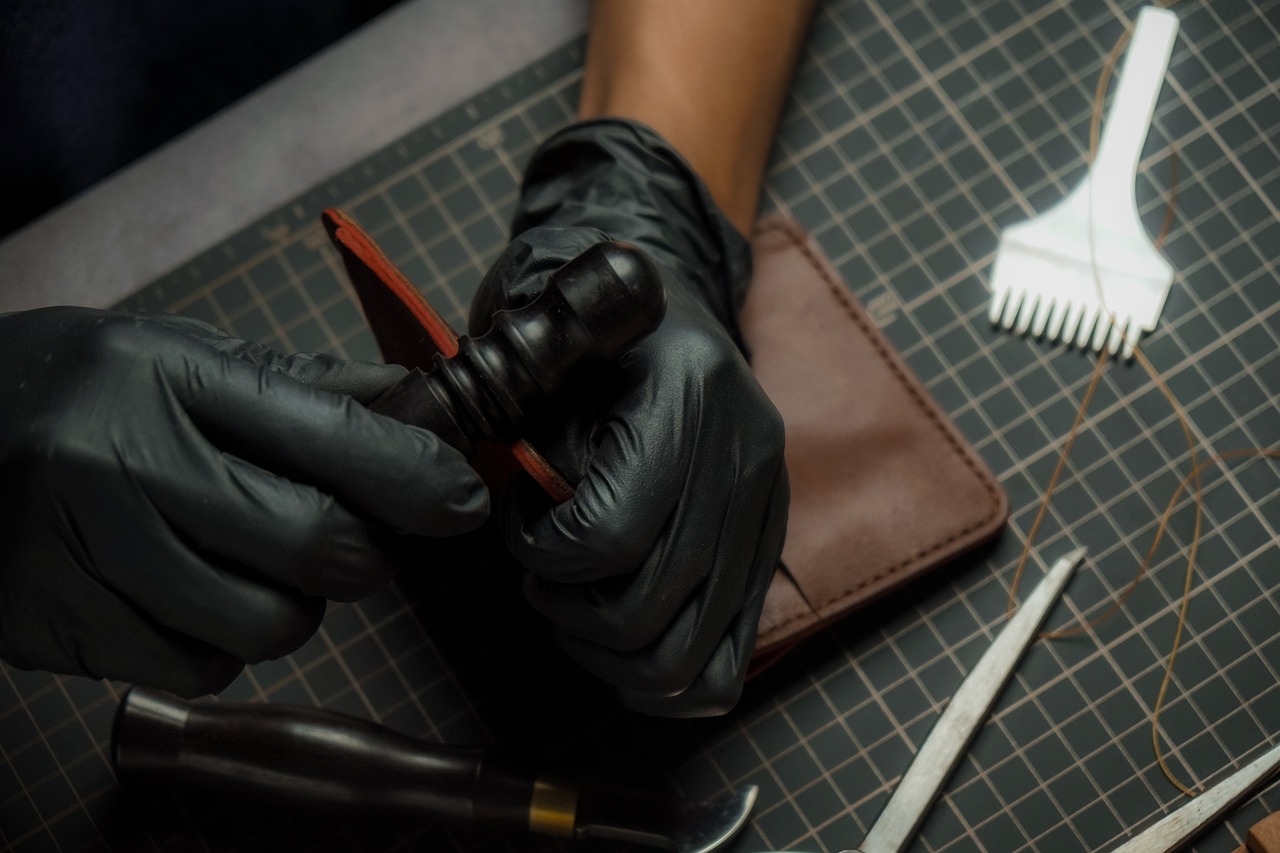
Advantages of Custodial Wallets
Custodial wallets have gained significant traction in the cryptocurrency landscape, especially among newcomers. One of the most compelling advantages of these wallets is their ease of use. Imagine stepping into a world filled with complex financial instruments and technical jargon; custodial wallets act as a friendly guide, simplifying the process of buying, selling, and holding cryptocurrencies. With user-friendly interfaces, these wallets make it easy for anyone to navigate the crypto space without needing a PhD in computer science.
Another notable benefit is the customer support that custodial wallets typically offer. Unlike non-custodial wallets, where you're often on your own, custodial services usually provide a safety net. If you find yourself in a bind—whether it's forgetting your password or experiencing a technical glitch—help is just a click away. This support can be invaluable, especially for those who might feel overwhelmed by the intricacies of managing their own keys.
Furthermore, custodial wallets allow for instant transactions. This is particularly important for users who want to take advantage of market opportunities quickly. With custodial wallets, transactions can often be completed in a matter of seconds, as the custodians handle the complexities behind the scenes. This speed can be a game-changer, especially in a market where prices can fluctuate dramatically within minutes.
Additionally, custodial wallets often come with built-in features that enhance the overall user experience. For instance, many custodial wallets offer multi-currency support, enabling users to manage various cryptocurrencies all in one place. This feature not only simplifies portfolio management but also allows users to diversify their investments without the hassle of switching between multiple wallets. It's like having a Swiss Army knife for your crypto needs!
To summarize, here are some key advantages of custodial wallets:
- Ease of Use: User-friendly interfaces that cater to beginners.
- Customer Support: Access to help when needed, providing peace of mind.
- Instant Transactions: Quick and efficient processing of trades and transfers.
- Multi-Currency Support: Manage various cryptocurrencies in one place.
In conclusion, while custodial wallets may not offer the same level of control as their non-custodial counterparts, they present a compelling case for those who prioritize convenience and support. If you're just starting your cryptocurrency journey, a custodial wallet might be the perfect first step into this exciting world.
1. What is a custodial wallet?
A custodial wallet is a type of digital wallet where a third party manages your private keys and assets. This means you trust the custodian to keep your funds safe.
2. Are custodial wallets safe?
While custodial wallets offer convenience and support, they come with risks, such as potential hacks. It's crucial to choose a reputable provider and stay informed about security measures.
3. Can I recover my funds if I forget my password?
Yes, custodial wallets typically have recovery options in place. If you forget your password, customer support can assist you in regaining access to your account.
4. Do custodial wallets charge fees?
Most custodial wallets charge fees for transactions and services. It's essential to review these fees before choosing a wallet to ensure it meets your needs.

Accessibility and User Experience
When it comes to custodial wallets, the first thing that often comes to mind is their remarkable accessibility. Imagine stepping into a world where managing your cryptocurrency is as easy as sending a text message. That's the kind of user experience custodial wallets aim to deliver. They are designed with the average user in mind, stripping away the complex jargon and technical barriers that often intimidate newcomers to the crypto space. With a few clicks, users can access their funds, make transactions, and even track their portfolio without needing to dive deep into the underlying technology.
One of the standout features of custodial wallets is their intuitive interfaces. Many custodial platforms offer sleek designs that guide users through the process of buying, selling, and transferring cryptocurrencies. This user-centric approach ensures that even those who may not be tech-savvy can navigate their wallets with ease. For example, many custodial wallets have integrated features like QR code scanning for quick transactions, which can make the entire process feel seamless. It’s like having a personal assistant dedicated to managing your digital assets!
Moreover, custodial wallets often come with built-in customer support. This can be a lifesaver for users who might encounter issues or have questions about their accounts. Imagine trying to access your funds only to forget your password or accidentally locking yourself out. With custodial wallets, help is usually just a chat or email away. This level of support can significantly enhance the user experience, as it provides a safety net for those who might feel overwhelmed by the technology.
Another aspect of accessibility is the multi-device support offered by many custodial wallets. Users can access their accounts from various devices—be it a smartphone, tablet, or desktop—ensuring that they can manage their assets anytime, anywhere. This flexibility is crucial in today's fast-paced world, where the ability to react quickly to market changes can make all the difference. It’s like having a bank in your pocket, ready to serve you at a moment's notice.
However, while custodial wallets excel in accessibility and user experience, it's important to remember that this convenience comes with its own set of trade-offs. Users are essentially placing their trust in a third party to manage their funds and private keys. This reliance can lead to concerns about security and privacy, which we will explore further in subsequent sections. But for those looking to dip their toes into the cryptocurrency waters, custodial wallets offer a welcoming and user-friendly entry point.
- What is a custodial wallet? A custodial wallet is a digital wallet where a third party manages your private keys, allowing for easier access and management of your cryptocurrency.
- Are custodial wallets safe? While custodial wallets provide convenience and support, they do come with risks, such as the potential for hacks and reliance on third-party security measures.
- Can I access my custodial wallet from multiple devices? Yes, most custodial wallets offer multi-device support, allowing you to manage your assets from your smartphone, tablet, or desktop.
- What should I do if I forget my password? Many custodial wallets provide customer support and recovery options to help you regain access to your account.
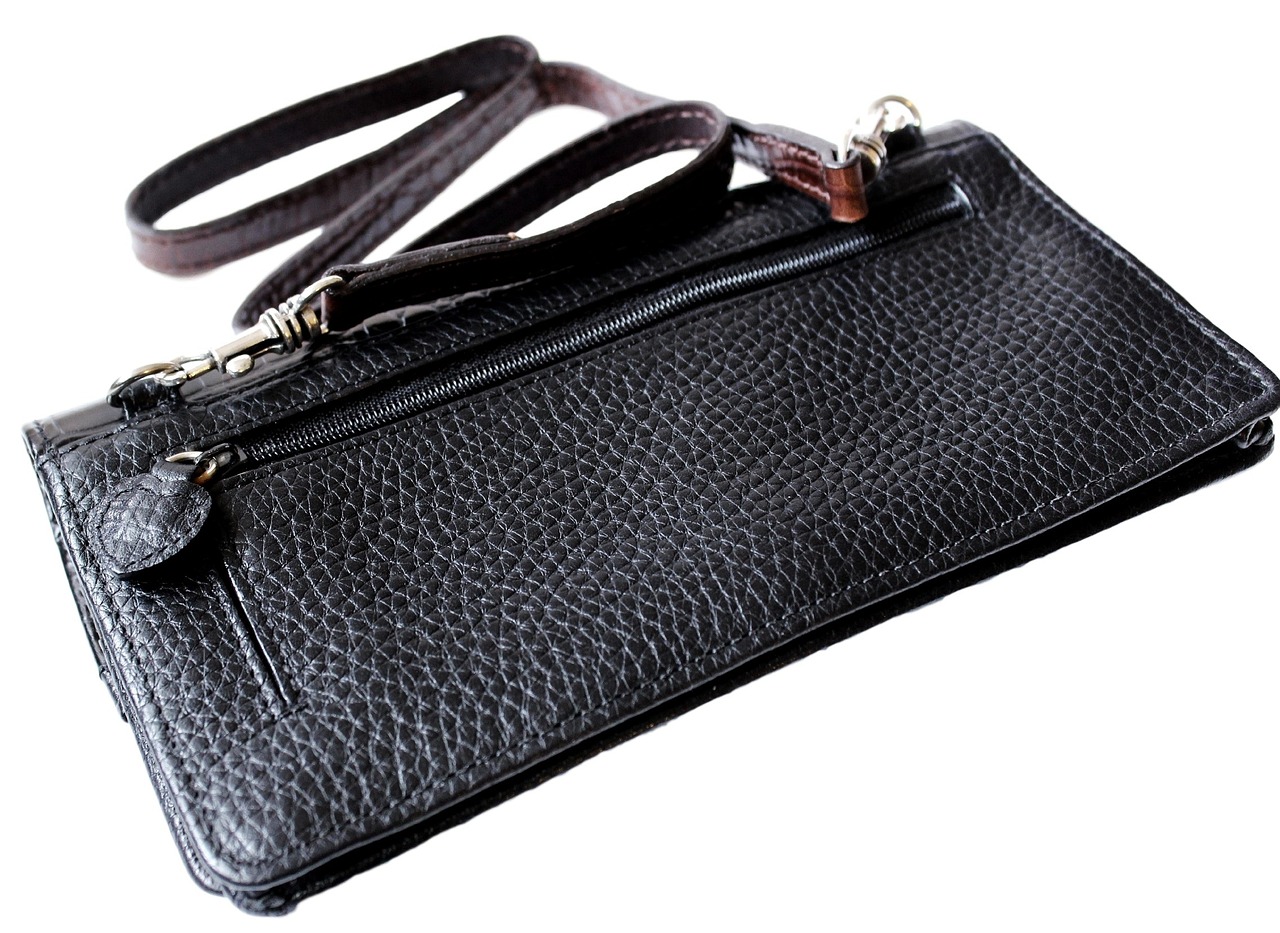
Customer Support and Recovery Options
When it comes to managing your cryptocurrency assets, the importance of customer support and recovery options cannot be overstated. Custodial wallets shine in this department, as they are designed to assist users who may not be tech-savvy or familiar with the intricacies of cryptocurrency management. Imagine having a safety net that catches you if you stumble—this is what custodial wallets offer through their dedicated support teams.
Most custodial wallet providers understand that their users may encounter various issues, from forgotten passwords to unauthorized access attempts. To alleviate these concerns, they provide a range of recovery options. For instance, users can often reset their passwords through email verification or answer security questions set up during the account creation process. This user-friendly approach is a significant advantage for beginners who might feel overwhelmed by the complexities of blockchain technology.
Additionally, many custodial wallets offer live chat support or email assistance, ensuring that help is just a click away. This immediacy can be a relief for users facing urgent issues, such as potential hacks or access problems. Imagine being able to chat with a support agent in real-time while you’re trying to secure your funds—this level of accessibility enhances user confidence and satisfaction.
However, it’s essential to remember that while custodial wallets provide these safety nets, they also come with the responsibility of choosing a reputable provider. Not all custodial wallets are created equal, and some may offer better support and recovery options than others. Therefore, doing your due diligence before selecting a wallet can save you from potential headaches down the line.
In summary, the customer support and recovery options provided by custodial wallets are invaluable, particularly for those new to the cryptocurrency world. They not only simplify the user experience but also help build trust in the platform. As you navigate your crypto journey, consider how these features can play a crucial role in your overall experience.
- What is the main advantage of using a custodial wallet?
Custodial wallets offer user-friendly interfaces and customer support, making them ideal for beginners. - How can I recover my account if I forget my password?
Most custodial wallets provide recovery options through email verification or security questions. - Is my cryptocurrency safe in a custodial wallet?
While custodial wallets offer security features, it's crucial to choose a reputable provider to minimize risks. - Can I access my funds without customer support?
Yes, you can access your funds, but having customer support can help resolve issues more efficiently.
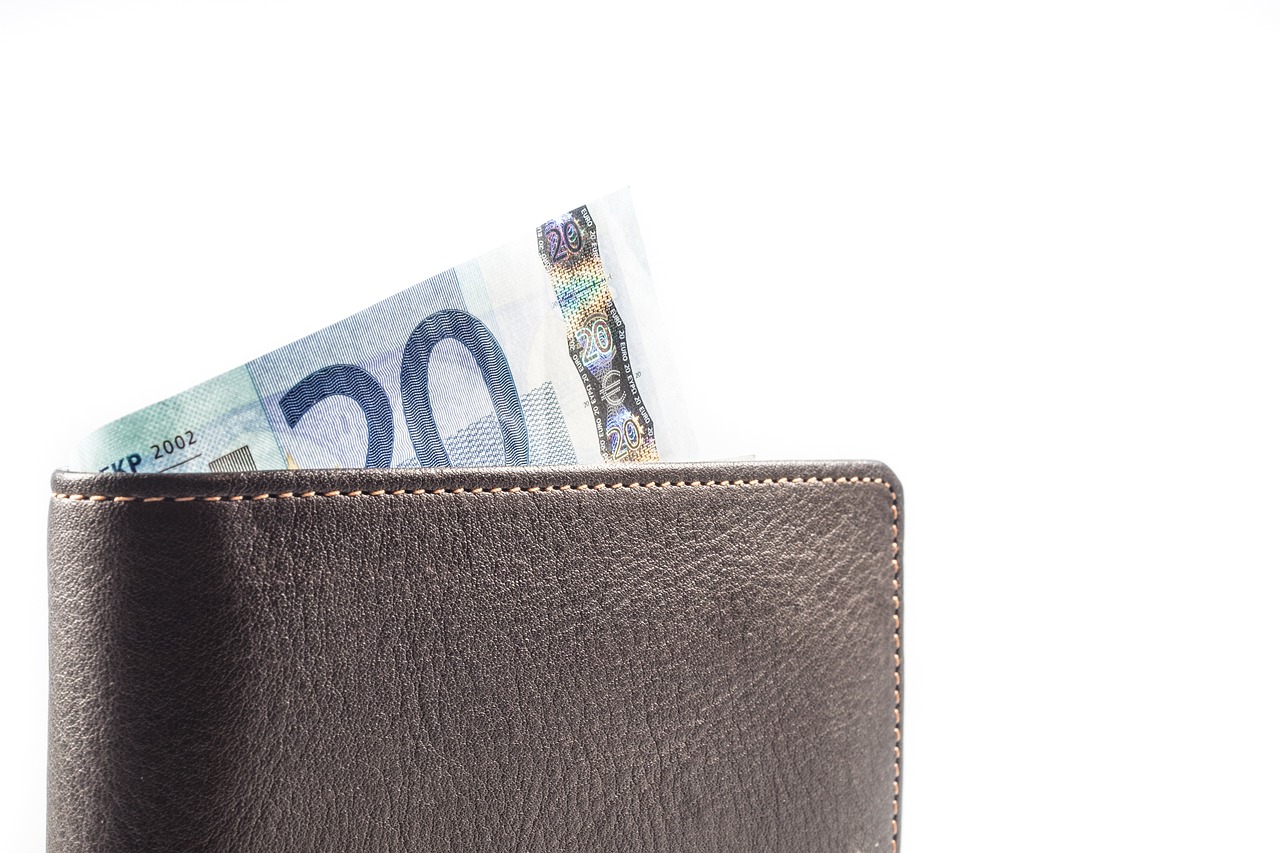
Advantages of Non-Custodial Wallets
Non-custodial wallets are becoming increasingly popular among cryptocurrency enthusiasts, and for good reason. One of the most significant advantages of these wallets is that they give users full control over their assets. Unlike custodial wallets, where a third party holds your private keys, non-custodial wallets allow you to manage your keys directly. This means that you are the sole owner of your funds, and no one else can access them without your permission. Imagine having the keys to a treasure chest that only you can open—this is the essence of non-custodial wallets.
Another compelling benefit is the enhanced privacy and anonymity that non-custodial wallets offer. When you use a custodial wallet, your transactions may be monitored by the service provider, and your personal information could be at risk of exposure. In contrast, non-custodial wallets enable you to conduct transactions without revealing your identity. This aspect is particularly appealing to users who value their privacy and want to keep their financial activities discreet. In a world where data breaches are all too common, protecting your information is paramount.
Furthermore, non-custodial wallets are often seen as more secure in the long run. While custodial wallets might provide a sense of security through customer support and recovery options, they also pose risks such as potential hacks or service shutdowns. Non-custodial wallets, on the other hand, empower users to take charge of their security measures. With the right practices in place, such as using hardware wallets or employing multi-signature features, users can significantly reduce the risk of losing their assets.
It's also worth noting that non-custodial wallets foster a sense of responsibility. Users must be diligent about managing their private keys, which can lead to better overall security practices. For instance, many users become more educated about cryptocurrency and blockchain technology as they navigate the intricacies of non-custodial wallets. This knowledge can be beneficial in making informed investment decisions and understanding the broader ecosystem.
In addition, the long-term control over assets that non-custodial wallets provide can be a game-changer for investors. With custodial wallets, users may face limitations on withdrawals or have to deal with potential fees imposed by the service providers. Non-custodial wallets eliminate these concerns, allowing users to access their funds whenever they want without restrictions. This flexibility can be particularly advantageous for those looking to capitalize on market opportunities as they arise.
To sum it up, non-custodial wallets offer a plethora of advantages, including:
- Full Control: You manage your private keys, ensuring sole ownership of your assets.
- Enhanced Privacy: Conduct transactions anonymously without third-party oversight.
- Long-Term Security: Reduce risks associated with hacks and service failures.
- Increased Responsibility: Users become more knowledgeable and proactive about their security.
- Flexible Access: Withdraw and manage funds without restrictions or fees.
In conclusion, while non-custodial wallets may require a bit more effort and understanding, the advantages they offer make them a worthwhile investment for anyone serious about managing their cryptocurrency assets. By taking control of your keys, you not only enhance your security but also empower yourself in the ever-evolving landscape of digital currencies.
1. What is a non-custodial wallet?
A non-custodial wallet is a type of cryptocurrency wallet where users retain full control over their private keys, allowing them to manage their assets independently.
2. Are non-custodial wallets safe?
Yes, non-custodial wallets can be safe if users follow best practices for key management, such as using hardware wallets and enabling two-factor authentication.
3. Can I recover my funds from a non-custodial wallet if I lose my keys?
No, if you lose your private keys, you will not be able to recover your funds. It's essential to back up your keys securely.
4. Do non-custodial wallets offer customer support?
Non-custodial wallets typically do not offer customer support in the same way custodial wallets do, as users are responsible for their own key management.
5. How do I choose a non-custodial wallet?
Consider factors like security features, user interface, compatibility with various cryptocurrencies, and community reputation when choosing a non-custodial wallet.
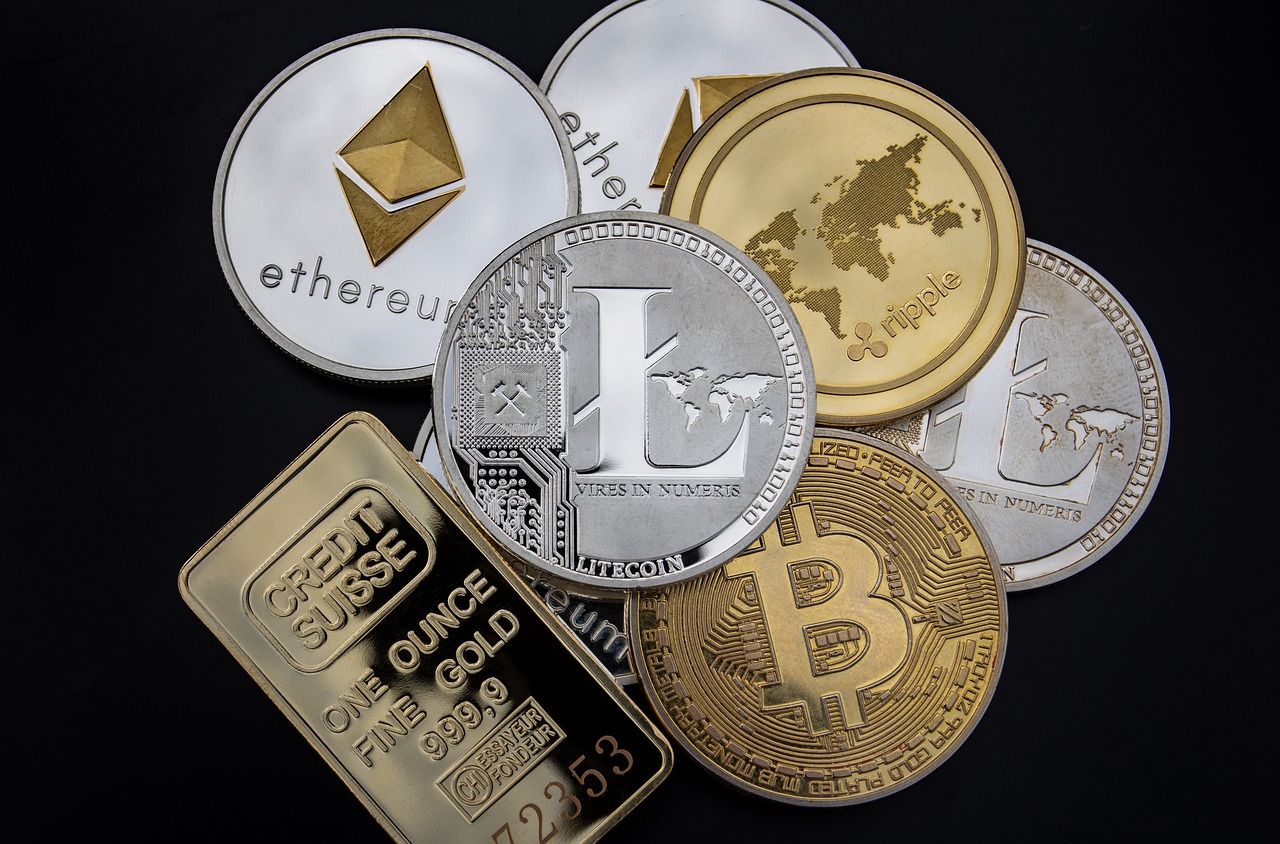
Privacy and Anonymity
When it comes to managing your cryptocurrency, are two crucial aspects that many users prioritize. Non-custodial wallets shine in this regard, allowing individuals to take control of their own private keys and, consequently, their financial data. Unlike custodial wallets, where a third party holds your keys and potentially your transaction history, non-custodial wallets empower you to transact without revealing your identity. Imagine walking through a bustling marketplace where you can buy what you want without anyone knowing who you are; that’s the level of anonymity non-custodial wallets can provide.
With a non-custodial wallet, your transactions are not tied to your personal information. This means that your financial activities remain private, greatly reducing the risk of unwanted exposure. For instance, when you use a custodial wallet, the provider might keep logs of your transactions, which can be vulnerable to data breaches or government scrutiny. In contrast, with a non-custodial wallet, you can make transactions without leaving a digital footprint that can be traced back to you.
However, it’s essential to understand that while non-custodial wallets offer enhanced privacy, they also require a greater level of responsibility from the user. You are in charge of your private keys, and losing them can mean losing access to your funds forever. Therefore, it’s crucial to implement strong security practices, such as:
- Using secure passwords: Always create complex and unique passwords for your wallets.
- Backing up your keys: Regularly back up your private keys and recovery phrases in a secure location.
- Utilizing hardware wallets: Consider using a hardware wallet for added security against online threats.
Moreover, the level of anonymity can vary depending on the specific non-custodial wallet you choose. Some wallets integrate features like coin mixing or privacy coins that further enhance your anonymity by obscuring transaction details. These features can be likened to using a cloak of invisibility in the digital world, allowing you to make transactions without being seen.
In conclusion, non-custodial wallets provide a robust framework for maintaining privacy and anonymity in cryptocurrency transactions. By taking control of your private keys, you not only safeguard your funds but also protect your identity from prying eyes. However, it’s vital to balance this freedom with the responsibility of managing your own security. Remember, in the world of cryptocurrency, with great power comes great responsibility!
- What is a non-custodial wallet? A non-custodial wallet allows users to control their private keys, giving them full ownership of their cryptocurrency.
- How do non-custodial wallets ensure privacy? They do not store user data or transaction history on a central server, allowing for anonymous transactions.
- Can I lose my funds with a non-custodial wallet? Yes, if you lose access to your private keys, you may lose your funds permanently.
- What are some best practices for using non-custodial wallets? Use strong passwords, back up your keys, and consider hardware wallets for enhanced security.
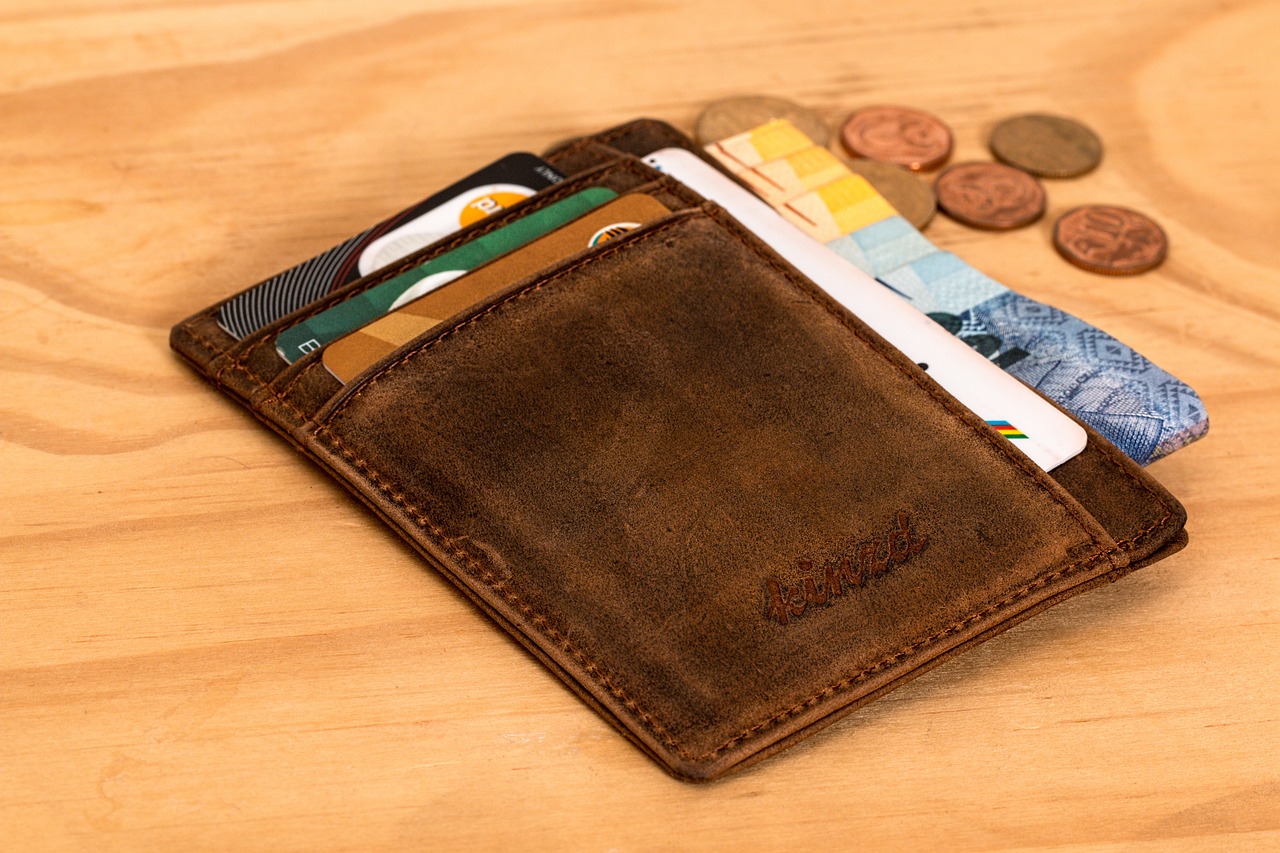
Long-Term Asset Control
When it comes to managing your cryptocurrency investments, one of the most significant advantages of non-custodial wallets is the they provide. Unlike custodial wallets, where a third party holds your private keys, non-custodial wallets empower you to be the sole guardian of your digital assets. This means that you have complete authority over your funds, allowing you to make decisions without needing to rely on anyone else. It's akin to owning a safe at home versus renting a safety deposit box at a bank; with the safe, you know exactly what's inside and can access it whenever you want.
Having long-term control over your assets is not just about ownership; it also plays a crucial role in your overall investment strategy. When you manage your own keys, you can implement various strategies tailored to your financial goals. For example, you might choose to hold your cryptocurrency for the long term, hoping for price appreciation, or you may prefer to trade actively. The freedom to execute your strategy without external constraints can be incredibly liberating.
However, this control comes with responsibilities. Users must understand that with great power comes great responsibility. If you lose your private keys, you risk losing access to your funds permanently. This is where the importance of proper key management comes into play. Many non-custodial wallets offer features like seed phrases to help users recover their wallets, but it's crucial to store these phrases securely. Think of it as writing down the combination to your safe; if you misplace it, you may never be able to access your valuables again.
To illustrate the importance of long-term asset control, consider the following table that compares the control features of custodial and non-custodial wallets:
| Feature | Custodial Wallets | Non-Custodial Wallets |
|---|---|---|
| Control over Private Keys | Third party controls | User controls |
| Risk of Loss | Minimal (dependent on custodian) | High (if keys are lost) |
| Investment Flexibility | Limited (dependent on custodian) | High (full control) |
| Privacy | Lower (third-party access) | Higher (user maintains anonymity) |
In conclusion, while non-custodial wallets provide users with long-term asset control, it's essential to approach this power with caution. By understanding the implications of managing your own keys and adopting sound security practices, you can enjoy the benefits of greater autonomy in your cryptocurrency journey. Remember, the more you know about your assets and how to protect them, the better equipped you'll be to navigate the ever-evolving landscape of digital currencies.
- What happens if I lose my private keys? If you lose your private keys, you will lose access to your funds permanently. It's crucial to keep them secure and backed up.
- Are non-custodial wallets safer than custodial wallets? Non-custodial wallets offer greater control and privacy, but they also require users to take responsibility for their security.
- Can I recover my non-custodial wallet? Yes, if you have your seed phrase, you can recover your wallet on any compatible platform.
Frequently Asked Questions
- What is the main difference between custodial and non-custodial wallets?
The primary difference lies in who controls the private keys. In custodial wallets, a third party manages your keys, meaning they have access to your funds. In contrast, non-custodial wallets give you full control over your keys, allowing you to manage your assets independently.
- Are custodial wallets safe to use?
Custodial wallets can be safe, but they come with risks. Since a third party holds your private keys, you must trust them to keep your funds secure. Hacks and breaches can occur, so it’s essential to choose a reputable custodian with strong security measures in place.
- What are the advantages of using a non-custodial wallet?
Non-custodial wallets offer enhanced privacy and security since you control your private keys. This means you’re less vulnerable to hacks and third-party failures. Additionally, they allow for anonymous transactions, giving you greater control over your financial privacy.
- Can I recover my funds if I lose access to my custodial wallet?
Yes, custodial wallets typically provide recovery options, allowing you to regain access to your funds through customer support. This is a significant advantage for users who may not be tech-savvy or may forget their passwords.
- What happens if I lose my private keys in a non-custodial wallet?
If you lose your private keys in a non-custodial wallet, you risk losing access to your funds permanently. There are no recovery options since you are the sole custodian of your keys. This highlights the importance of securely backing up your keys and understanding the responsibilities that come with managing them.
- Are custodial wallets suitable for beginners?
Absolutely! Custodial wallets are designed with user-friendliness in mind, making them ideal for beginners. They often come with intuitive interfaces and customer support, which can help new users navigate the world of cryptocurrency without feeling overwhelmed.
- How do custodial wallets ensure regulatory compliance?
Custodial wallets often follow strict regulatory standards to protect user data and prevent fraud. This compliance can enhance user trust, as it shows that the custodian is taking steps to operate legally and securely within the financial system.
- Can I use both types of wallets simultaneously?
Yes, many users choose to use both custodial and non-custodial wallets. This strategy allows them to benefit from the convenience of custodial wallets while still maintaining control over a portion of their assets through non-custodial wallets.

